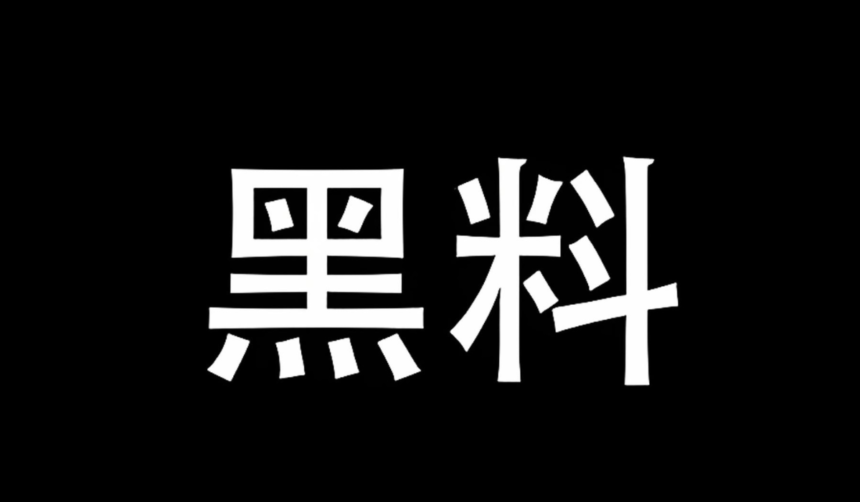SEO Meta-Description:
Discover the fascinating world of 黑料, a term that holds significant influence in online communities. Understand its origins, usage, and impact on modern digital culture.
Introduction
In the digital age, the term 黑料 has become increasingly prominent, especially within online communities. Originating from Chinese internet slang, 黑料 refers to controversial or negative information, often about celebrities, public figures, or brands. This term has evolved to signify a wide range of content, from minor scandals to major controversies, and plays a crucial role in shaping public opinion. In this article, we’ll delve deep into the concept of 黑料, exploring its origins, how it is used, and its impact on society.
What is 黑料?
黑料 is a Chinese term that directly translates to “black material” or “black information.” It is often used to describe information or gossip that can harm someone’s reputation. The term gained popularity on Chinese social media platforms, where users would share or expose 黑料 about celebrities, influencers, or even companies. The nature of 黑料 can vary widely, from minor infractions like unflattering photos to serious allegations such as fraud or criminal behavior.
The Origins of 黑料
The concept of 黑料 has roots in traditional Chinese culture, where reputation and face (面子) are of utmost importance. In ancient times, maintaining one’s honor and avoiding scandal were essential. This cultural value has carried over into the modern era, where the spread of information, both true and false, can have significant consequences. The rise of social media platforms has amplified the impact of 黑料, making it easier for information to spread rapidly and widely.
How 黑料 is Used in Modern Digital Culture.
In today’s digital culture, 黑料 is often used as a tool for various purposes. It can be employed to bring attention to social issues, hold public figures accountable, or simply entertain an audience. However, the use of 黑料 also raises ethical concerns, as it can be used to spread misinformation, invade privacy, or ruin reputations without due process. The line between legitimate exposure and malicious gossip is often blurred, making the concept of 黑料 a double-edged sword.
The Role of Social Media in Spreading 黑料
Social media platforms like Weibo, TikTok, and WeChat have played a significant role in the proliferation of 黑料. These platforms allow users to share content quickly and reach a large audience. Hashtags, trending topics, and viral posts can catapult 黑料 into the public eye, often before the subject has a chance to respond. The speed at which information spreads on social media has made it difficult to control the narrative, and once 黑料 is out, it can be nearly impossible to retract.
Impact of 黑料 on Celebrities and Public Figures
For celebrities and public figures, 黑料 can be a career-altering event. While some may be able to recover from minor scandals, others may see their careers derailed by more serious allegations. The public’s appetite for sensationalism means that even unverified or exaggerated 黑料 can have devastating consequences. Some celebrities have learned to navigate these situations by addressing the 黑料 head-on, while others may choose to ignore it in the hopes that it will fade away.
The Ethics of Exposing 黑料
The practice of exposing 黑料 raises several ethical questions. Is it right to publicly share someone’s personal information without their consent? What if the 黑料 is based on rumors or false information? The ethics of 黑料 are complex and often depend on the nature of the information and the intent behind sharing it. While some argue that exposing 黑料 is a form of social justice, others believe it can be a form of cyberbullying or character assassination.
Case Studies: Notable Instances of 黑料
To better understand the impact of 黑料, let’s look at some notable instances where 黑料 played a pivotal role in public perception. For example, the case of a famous Chinese actress who was accused of tax evasion through 黑料 spread online. The public outcry and subsequent investigation led to her paying massive fines and facing significant damage to her career. This case highlights how 黑料 can not only influence public opinion but also lead to legal consequences.
How Companies Handle 黑料
Brands and companies are not immune to 黑料. Negative information about a company’s practices, products, or leadership can quickly spread online, leading to boycotts, stock drops, and long-term damage to the brand’s reputation. Companies must be vigilant in monitoring social media for 黑料 and respond quickly and appropriately to mitigate damage. Some companies have even turned 黑料 into positive PR by addressing concerns transparently and making changes to improve their practices.
The Legal Implications of Spreading 黑料
In some cases, spreading 黑料 can have legal repercussions. Defamation, slander, and invasion of privacy are just a few legal issues that can arise from sharing 黑料. In China, the government has implemented strict regulations on online content, and those who spread false or harmful information can face fines or imprisonment. However, the challenge lies in balancing the right to free speech with the need to protect individuals from harm.
The Role of 黑料 in Cybersecurity
黑料 is not just about gossip and scandals; it can also involve serious cybersecurity concerns. Hackers may use 黑料 as a form of extortion, threatening to release sensitive information unless a ransom is paid. This kind of 黑料 is particularly dangerous because it involves not only the individual’s reputation but also their personal safety and financial security. As cyber threats continue to evolve, the role of 黑料 in cybersecurity will likely become more prominent.
Can 黑料 Ever Be Beneficial?
While 黑料 is generally seen in a negative light, there are instances where it can be beneficial. For example, exposing corrupt practices or unethical behavior through 黑料 can lead to positive change. Whistleblowers who share 黑料 about government or corporate misconduct play a crucial role in holding powerful entities accountable. However, this only applies when the 黑料 is accurate and shared with the intent of promoting justice rather than causing harm.
How to Protect Yourself from Becoming a Victim of 黑料
In an era where 黑料 can spread like wildfire, it’s important to take steps to protect yourself. Maintaining a clean online presence, being mindful of what you share, and understanding privacy settings on social media platforms are essential practices. Additionally, if you become the target of 黑料, it’s important to respond calmly and seek legal advice if necessary. Engaging in a public battle may only amplify the situation, so handling it with care is crucial.
The Future of 黑料 in Digital Culture
As digital culture continues to evolve, the role of 黑料 will likely become more complex. With advancements in technology, the ways in which 黑料 is created, shared, and consumed will change. Deepfakes, AI-generated content, and other technological developments could make it even harder to distinguish between real and fake 黑料. As a result, the need for media literacy and critical thinking skills will become increasingly important.
The Global Influence of 黑料
While 黑料 originated in China, its influence has spread globally. The concept of exposing negative information is not unique to Chinese culture, and similar practices exist in other parts of the world. However, the specific term 黑料 has gained international recognition, particularly as Chinese social media platforms become more popular outside of China. This global influence means that understanding 黑料 is important not only for those within Chinese culture but also for anyone who participates in global digital communities.
Balancing Transparency and Privacy in the Age of 黑料
One of the biggest challenges posed by 黑料 is balancing the need for transparency with the right to privacy. On one hand, exposing wrongdoing is important for accountability; on the other hand, everyone has a right to their personal privacy. Striking this balance requires careful consideration of the impact that sharing 黑料 can have, not just on the individual or entity involved, but on society as a whole.
Conclusion
黑料 is a powerful concept in modern digital culture, with the ability to shape public opinion and influence outcomes in both positive and negative ways. Whether it’s a tool for exposing truth or a weapon for spreading harm, the impact of 黑料 cannot be underestimated. As we navigate an increasingly complex digital landscape, understanding the role of 黑料 and approaching it with caution is essential. The future will likely bring new challenges and opportunities related to 黑料, making it a topic worth watching closely.
Frequently Asked Questions
What does 黑料 mean?
黑料 refers to controversial or negative information, often about celebrities, public figures, or brands, that is shared to harm their reputation.
How did 黑料 originate?
黑料 has its roots in Chinese culture, where reputation is highly valued. The term gained prominence with the rise of social media, where such information could spread rapidly.
Is sharing 黑料 legal?
Sharing 黑料 can have legal consequences, especially if it involves defamation, slander, or invasion of privacy. In some countries, there are strict regulations governing the spread of harmful information online.
Can 黑料 be beneficial?
In some cases, 黑料 can be beneficial if it exposes corruption or unethical behavior. However, this is only the case when the information is accurate and shared with good intentions.
How can I protect myself from 黑料?
Protecting yourself from 黑料 involves maintaining a clean online presence, being cautious about what you share, and understanding privacy settings on social media. If you become a target, it’s important to respond calmly and seek legal advice if necessary.
What is the future of 黑料 in digital culture?
As technology advances, the ways in which 黑料 is created and shared will evolve. This will likely make it harder to distinguish between real and fake information, emphasizing the importance of media literacy and critical thinking.










